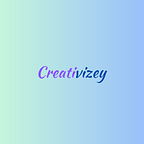How Artificial Intelligence Will Affect the Job Market and the Future of Work
Introduction:
In numerous aspects of our lives, artificial intelligence (AI) has become a transformational force. The labor market is no exception. AI technologies are redefining sectors, changing employment positions, and opening up new opportunities as machine learning and automation progress. This article discusses the tremendous effects that AI will have on the labor market and the nature of employment in the future, as well as the possibilities and problems that will develop as we adapt to this technological revolution.
The evolution of work
Technological developments have influenced the character of work throughout history. Each wave of innovation, from the industrial revolution to the digital age, has challenged established work types while also generating new ones. We are now on the verge of a new revolutionary age due to the development of AI.
Robotics and task-based AI
Automating tedious and repetitive jobs is one of the major effects of AI on the labor market. Systems using artificial intelligence (AI) may effectively perform data processing, customer service, and routine administrative tasks. Although rising automation simplifies processes and boosts efficiency, it also prompts worries about possible job losses in some industries. Many people worry that AI may replace human employees, forcing them to find new jobs or develop new skills.
New employment positions and Skills:
As AI technology progresses, it generates demand for new employment positions that match its capabilities. AI engineers, data scientists, and machine learning specialists are among the trained individuals needed for the installation and upkeep of AI systems. For those with the necessary skill sets, these positions provide interesting opportunities.
Furthermore, AI enhances current job responsibilities by replacing some duties, freeing up workers to concentrate on higher-value work. AI, for instance, can help doctors with diagnosis, allowing them to devote more time to patient care. As humans and AI work together, new opportunities for hybrid employment roles that combine human creativity and critical thinking with AI’s scientific capacity are also created.
Upskilling and Lifelong Learning:
Individuals have to support lifelong learning and upskilling in order to adapt to the changing employment market. The requirement for human-specific abilities like creativity, problem-solving, emotional intelligence, and flexibility is rising as AI replaces regular work. For employees to be employable and grow in their careers, promoting a culture of lifelong learning and providing them with digital literacy and AI-related skills will be essential.
Impact on Industries: AI is revolutionizing every industry. A few industries that profit from AI-driven automation and data analysis include manufacturing, shipping, customer service, and finance. As sectors change, some jobs may be lost, but new possibilities often appear. AI, for instance, may enhance consumer experiences, enable personalized marketing, and increase supply chain effectiveness.
The secret is to figure out how AI might enhance human talents rather than completely replace them.
Addressing Ethical Issues:
The development of AI also brings up significant ethical issues. Transparency, justice, and accountability should be prioritized in the responsible development and deployment of AI systems. To avoid biases, protect privacy, and minimize unplanned effects, regulations must be in place. A fair transition also requires addressing the possible effects of AI on job displacement and providing impacted employees with training opportunities and social safety nets.
Conclusion:
The influence of artificial intelligence (AI) on the labor market and the future of labor is apparent. Despite the possibility of robotics in some work positions, new possibilities, and hybrid roles will appear. The secret is to upskill and pursue lifelong learning in order to adapt to this fast-changing environment. We can create a future in which humans and computers collaborate to produce a more effective, creative, and diverse workforce by realizing the potential of AI and properly utilizing its power.
